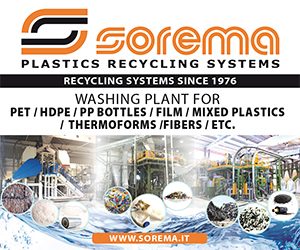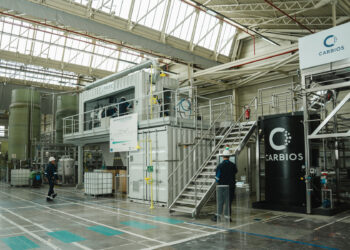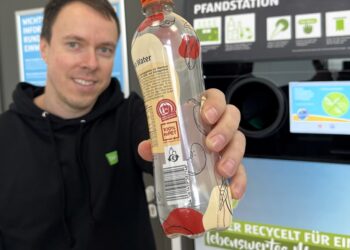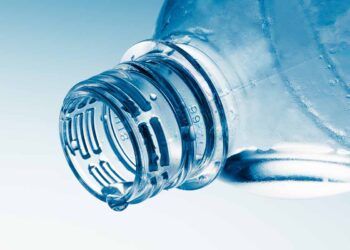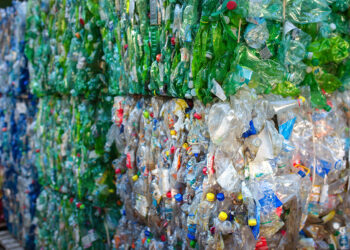A study commissioned by Closed Loop Partners identifies strategies to enhance the PET bottle recycling system, allowing RPET to better compete with virgin plastic.
The report, “Cleaning the rPET Stream: How we scale post-consumer recycled PET in the U.S.,” was prepared by consulting and research firm Resource Recycling Systems (RRS) with input from the Association of Plastic Recyclers (APR) and the National Association for PET Container Resources (NAPCOR).
“The study identifies a set of levers that can be pulled to clear the way for brand owners to make the additional investment in the use of rPET,” Nelson Switzer, chief sustainability officer for Nestlé Waters North America, stated in a press release. Nestlé Waters North America is an investor in Closed Loop Fund and a member of APR. “If the right combination of these levers can be pulled, costs for rPET will decline and use will increase – a win-win for the environment and the economy.”
The report looked at several interventions that can improve PET recycling:
- Improving sorting and quality control at materials recovery facilities (MRFs), including installing optical sorters and robotics equipment and implementing best management practices.
- Installing equipment to bypass the pellet stage, allowing flakes to be directly blended with virgin resin or molded into preforms.
- Having brands commit to using packaging that meets APR Design Guidelines, ensuring recyclability.
- Having brands enter into long-term RPET purchase agreements.
- Using chemical depolymerization technologies to produce like-virgin PTA and MEG monomers
- Developing markets for non-PET materials, which would incentivize MRFs to keep those other marketable materials out of PET bales.
The study estimates the suite of interventions would benefit MRFs by improving yields, reducing costs and increasing revenue opportunities. For plastics reclaimers, the improvements would boost yields, lower costs and reduce exposure to price volatility and commodity risks. For brand owners, they would increase the volume of higher-quality RPET at a lower cost, provide more flexibility in end uses for the recycled plastic and reduce volatility in price.
If implemented at scale, the improvements could mean an additional 370 million pounds of PET bottles are recycled each year. If that were the case, the national PET bottle recycling rate would jump from 28 percent to 34 percent.






